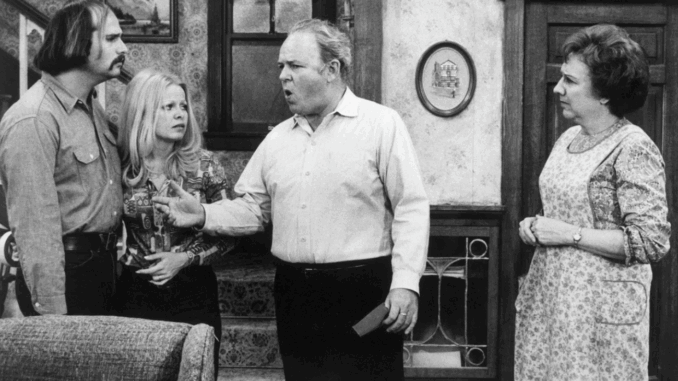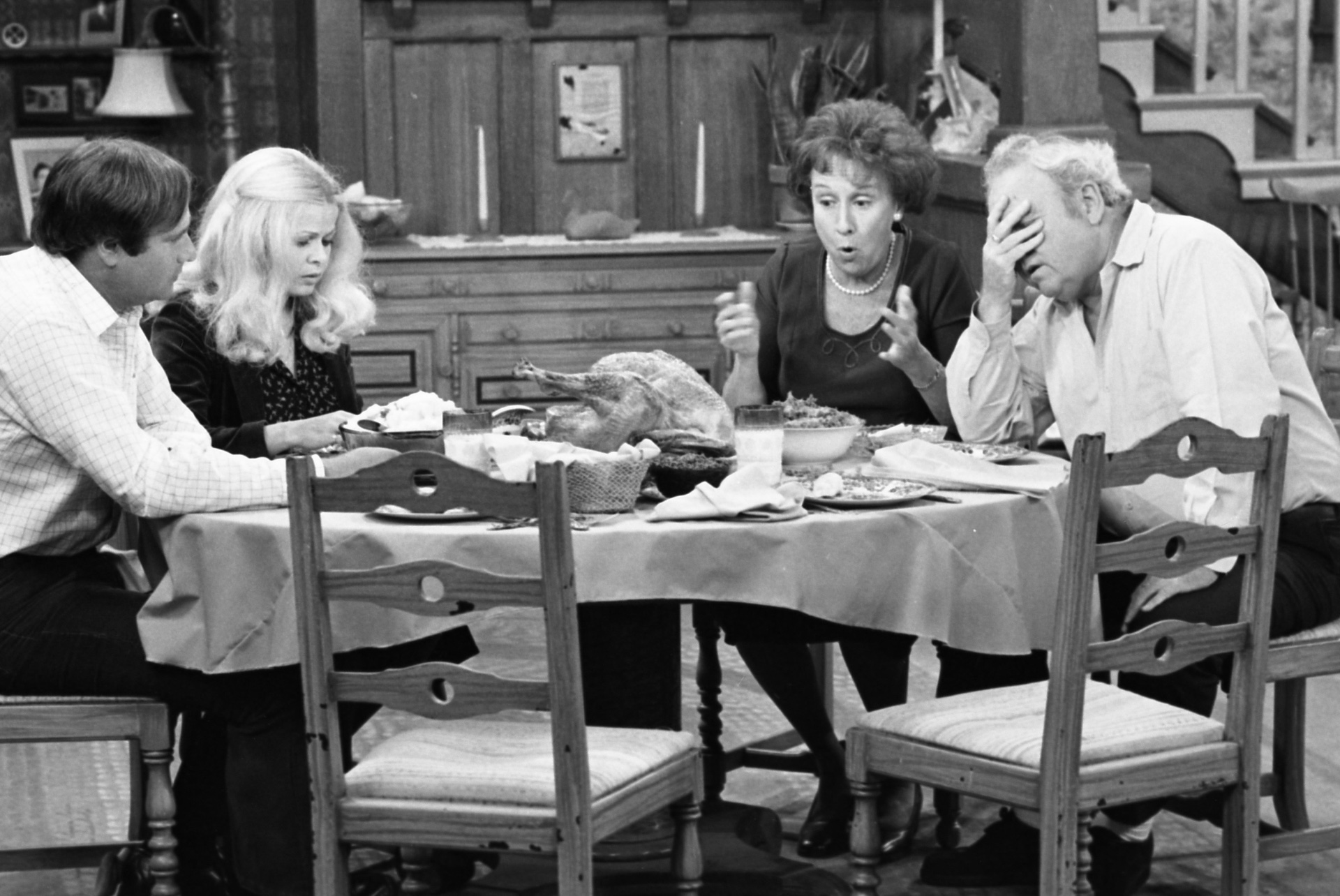
When All in the Family first aired in 1971, it didn’t feel like television. It felt like someone had hidden a camera inside an actual Queens living room — and captured all the tension, messiness, and uncomfortable truths that families usually avoided, especially on TV.
Gone were the perfect parents in pearls and neckties. In their place stood Archie and Edith Bunker — flawed, funny, and frighteningly real. What Norman Lear created wasn’t just a sitcom; it was a national reckoning disguised as entertainment.
For the first time, a sitcom wasn’t just about laughs. It was about the world outside the front door.
Politics at the Dinner Table — and On TV

Before All in the Family, shows like Leave It to Beaver and The Donna Reed Show gave us sanitized versions of American life. But in the Bunker household, you couldn’t escape reality. Vietnam. Civil rights. Women’s liberation. Watergate. These weren’t topics hinted at — they were dissected in full view, often during dinner.
Each episode felt like a live debate. Mike “Meathead” Stivic represented the frustrated, idealistic youth. Archie Bunker, meanwhile, clung to his worldview like it was a life raft in a sea of change. And between them sat Edith — not simple, as she was often labeled, but deeply empathetic and wiser than she let on.
The brilliance of the writing was that it didn’t tell you who to root for. It gave you the space to see all sides — and then form your own opinion.
Not Just Groundbreaking — Enduring
While many shows fade when their social commentary becomes outdated, All in the Family remains strikingly relevant. Why? Because its core question never goes away:
Can people with opposite beliefs still love each other?
In today’s divided world, it’s a question worth asking again.
You see echoes of All in the Family in everything from Modern Family to The Carmichael Show. But few have matched its raw honesty. There were no studio polish tricks, no sweeping orchestral moments. Just characters, a couch, and conversations that mattered.
A Legacy Bigger Than TV
Norman Lear didn’t just change what could be said on television — he changed what television was for.
All in the Family didn’t comfort its viewers. It challenged them. And it did so with such wit and authenticity that even the harshest critics couldn’t look away. You laughed, then winced, then maybe thought a little harder about what you believed.
Fifty years later, that might still be the boldest move any sitcom has ever made.